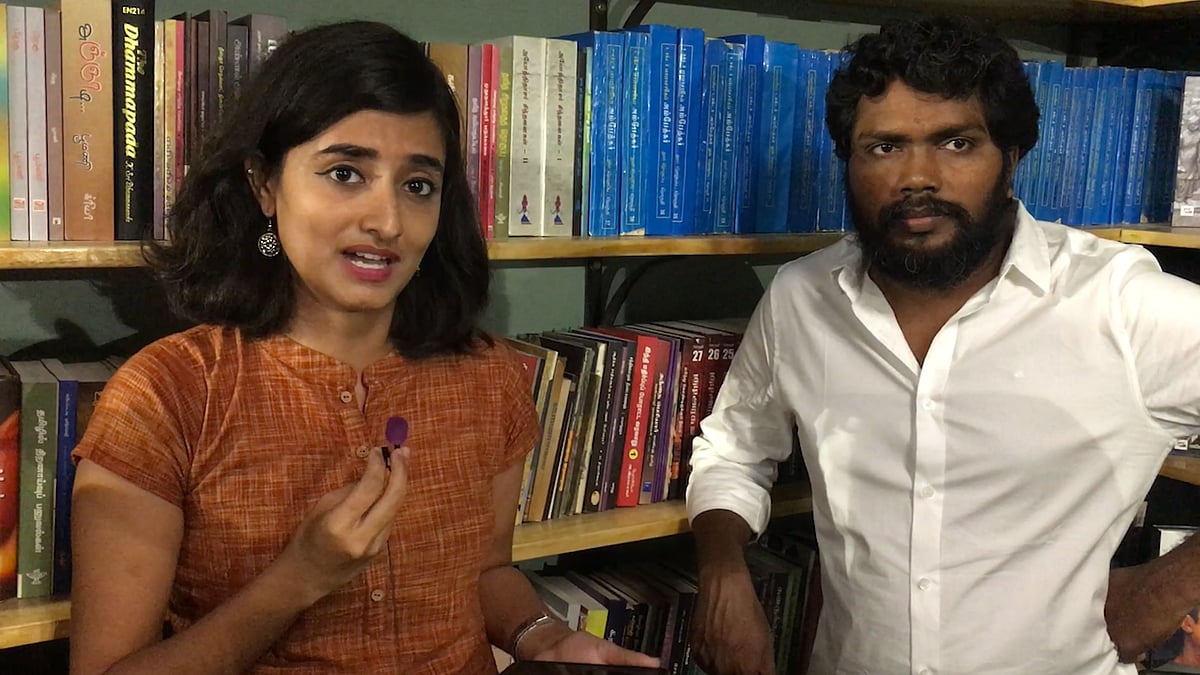Director Pa Ranjith Talks Caste, Cinema and Gaana
Director Pa Ranjith talks about showing raw realities of caste and other vices plaguing society through cinema.

advertisement
Video Editor: Vikram Venkateswaran
Pa Ranjith is a Tamil filmmaker who has created a brand by himself. His movies are hard-hitting and talk about pressing issues of the society like caste, gender roles, Dalits, honor killing, violence, rich-poor divide and other vices. His movies Kaala, Kabali, Attakathi and Madras have won several accolades and been screened at international forums as well. Ranjith produced the film Pariyerum Perumal recently which is already raking critic reviews.
Pa Ranjith has also challenged the status quo quite often through music. During the Margazhi music season in Chennai in 2017, he launched a platform with a band named, ‘Casteless Collective’. They perform gaana songs on Tamil fishermen being caught by Srilanka, reservations, state of Tamil Nadu politics, manual scavenging and the agrarian crisis.
Tamil gaana music is energetic with quick-witted lyrics and is usually about politically charged and socially relevant issues voiced in the local dialect.
He has been infusing a lot of gaana in his movies Kaala and Pariyerum Perumal as well.
The Quint caught up with Pa Ranjith and he talked all about caste, Tamil cinema, responsibility of a filmmaker and gaana music.
Pariyerum Perumal was a naked portrayal of caste, inter caste marriage. Tell us the story of how this film happened?
For a while I have been familiar with the way director/writer Mari Selvaraj writes. He was the assistant of Director Ram. When he told me this story, I really liked it and wanted to do it immediately.
When I googled your name the first suggestion I get ‘Ranjith caste.’ You have always tried to debunk the caste system in your films, now how do you react to this ?
I believe that I need to talk about the inequality in society through cinema. Even today we are hung up on caste labels and don’t live as just humans. Caste always creates differences inside us and that causes trouble in society. I think caste is a plague to Indian society. I am using this space of cinema to talk about caste but inspite of that, searching for a director in terms of caste is. . .(laugh). When Bima Das won the 400m race, the first thing people searched for was her caste. People are still fixated on - ‘Did a person from my caste win?’ I am scared if youngsters today
are getting more tangled in this web of caste.That’s why I am attempting an open discussion on caste.
Your initiative ‘Casteless Collective’ brought gaana to a big stage. What image of gaana did you want to debunk and what image did you want to portray?
Usually gaana singers are never given the limelight, never get to go onstage. And I wanted to give music like that a platform. I feel gaana can convey emotions so effectively and I think it is a super music form. For the people who don’t feel that, I just think they haven’t heard it properly and I am creating a stage to make this music louder - to be heard.
How you do describe your cinema?
I still think I have done movies that I am not completely satisfied with but soon I will make one that I am content with.
What is the colour blue to you?
Blue is the colour of the sky and below it we are all equal.
What is the colour saffron mean?
Saffron is the one that creates trouble and causes differences.
What about honor killing?
It angers me. I just can’t understand the mentality of a father who can kill his own child and also it shows that people’s thoughts are still so backward.
If you can give a message to the directors and writers of Indian cinema what would you want to tell?
As long as as they don’t create any inequality in the society, that would be enough.
(At The Quint, we question everything. Play an active role in shaping our journalism by becoming a member today.)